We have all experienced the confusion of our heat pumps using excessive electricity. No need to worry, as this article will uncover the mystery behind heat pump electricity consumption.
Did you know that heat pumps can account for up to 50% of your home’s energy consumption? That’s right! So, join us as we delve into the different types of heat pumps, factors affecting their electricity consumption, and tips to optimize their efficiency.
Let’s demystify heat pump electricity usage together.
Key Takeaways
- Geothermal heat pumps require less electricity compared to air source heat pumps.
- Regular maintenance, such as cleaning filters and coils, reduces electricity consumption.
- Properly sizing the heat pump according to the space’s heating and cooling needs helps reduce electricity usage.
- Insulating the home and sealing air leaks improves heat pump efficiency.
Different Types of Heat Pumps and Their Electricity Usage
Now let’s explore the various types of heat pumps and how they use electricity.

When it comes to heat pumps, there are two main types: geothermal heat pumps and air source heat pumps.
Geothermal heat pumps utilize the constant temperature of the earth to provide heating and cooling for buildings. These pumps transfer heat between the ground and the building, making them highly efficient and environmentally friendly.
On the other hand, air source heat pumps extract heat from the air outside and transfer it into the building. They work by absorbing heat from the outdoor air and releasing it inside.
Both types of heat pumps rely on electricity to power their compressors and fans, which are vital components for heat transfer. However, it’s worth noting that geothermal heat pumps typically require less electricity compared to air source heat pumps, thanks to the stable ground temperature.
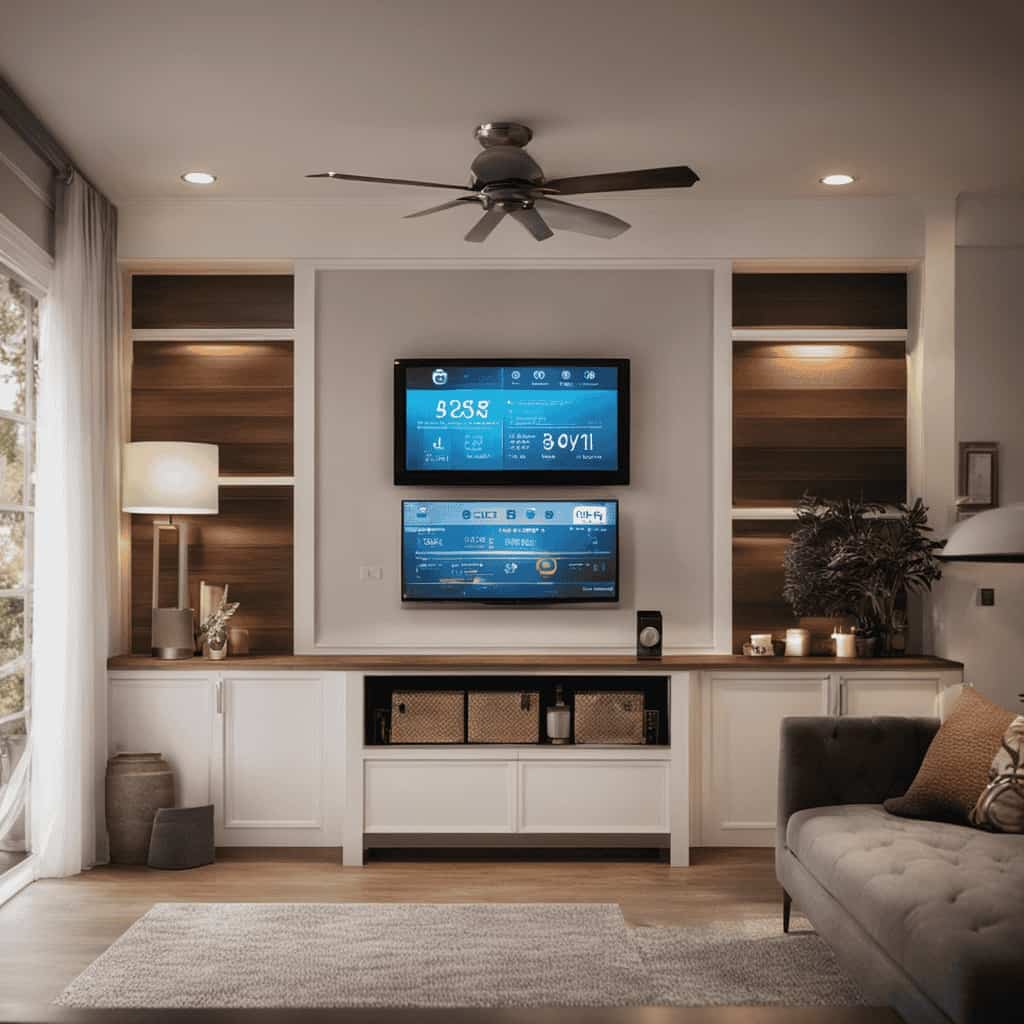
Factors Affecting Heat Pump Electricity Consumption
There are several factors that can affect our heat pump’s electricity consumption.
One important factor is heat pump maintenance. Regular maintenance, such as cleaning the filters and coils, can ensure that the heat pump operates efficiently and consumes less electricity.
Another factor to consider is the size of the heat pump. A properly sized heat pump that matches the heating and cooling needs of the space can help reduce electricity usage.
Additionally, implementing cost-saving strategies can also impact electricity consumption. For example, using programmable thermostats to adjust temperature settings when no one is at home can lead to energy savings. Insulating the home and sealing any air leaks can also improve the heat pump’s efficiency.

By taking these factors into account, homeowners can optimize their heat pump’s electricity consumption and reduce energy costs.
Now, let’s move on to comparing the energy efficiency of different heat pump models.
Comparing Energy Efficiency of Heat Pump Models
How do we compare the energy efficiency of different heat pump models? When it comes to selecting a heat pump, it’s important to consider its energy efficiency. Here are three key factors to consider when comparing heat pump models:
-
Seasonal Energy Efficiency Ratio (SEER): The SEER rating measures the cooling efficiency of a heat pump. Higher SEER ratings indicate greater energy savings and lower operating costs.
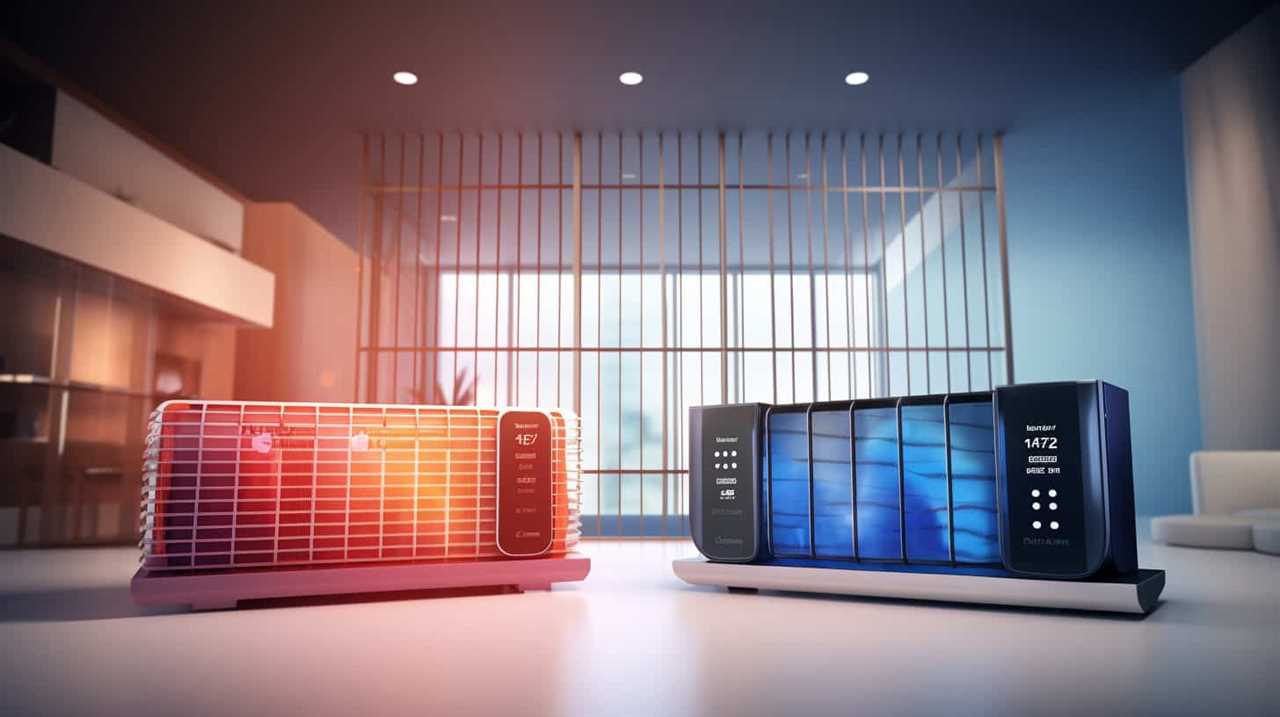
-
Heating Seasonal Performance Factor (HSPF): The HSPF rating measures the heating efficiency of a heat pump. Similar to SEER, higher HSPF ratings indicate better energy savings and lower operating costs during the heating season.
-
Energy Star Certification: Look for heat pumps that are Energy Star certified. These models have met strict energy efficiency requirements set by the Environmental Protection Agency (EPA), ensuring significant energy savings and cost-effective operation.
Understanding the Impact of Climate on Heat Pump Electricity Usage
Understanding the climate’s impact on heat pump electricity usage is crucial for optimizing energy efficiency and reducing operating costs. Regional variations in heat pump electricity usage and seasonal fluctuations in heat pump energy consumption are key factors to consider.
In colder regions, where the climate is more extreme, heat pumps need to work harder to extract heat from the outside air, resulting in higher electricity usage. Conversely, in milder regions, heat pumps require less energy to operate.
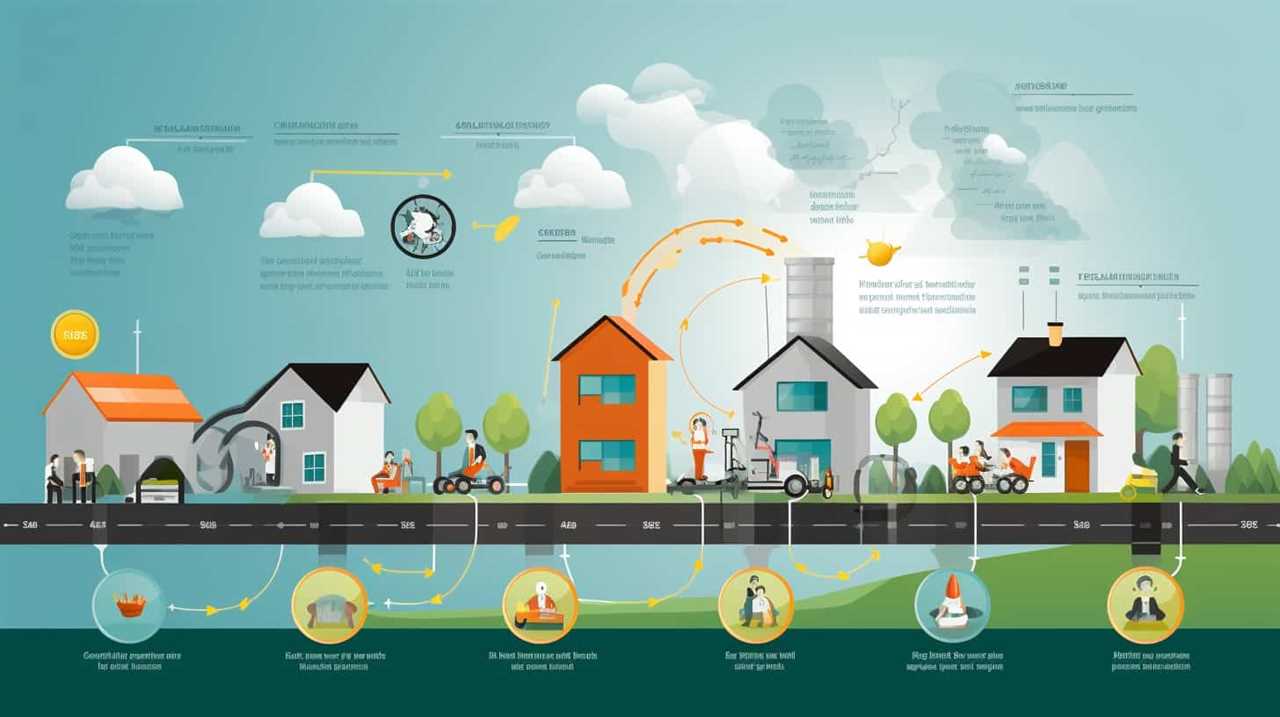
Additionally, seasonal fluctuations play a significant role. During the winter months, when temperatures are lower, heat pumps consume more electricity to maintain the desired indoor temperature. In contrast, during the summer months, when temperatures are higher, heat pump energy consumption decreases.
Tips to Optimize Heat Pump Electricity Efficiency
To maximize heat pump electricity efficiency, we should prioritize regular maintenance and set optimal temperature settings. By following these simple tips, we can ensure that our heat pumps are running at their most efficient levels, reducing energy consumption and saving money in the process.
Here are three key steps to optimize heat pump electricity efficiency:
-
Schedule regular heat pump maintenance: Regular maintenance, such as cleaning or replacing filters, lubricating moving parts, and checking refrigerant levels, will ensure that your heat pump operates at its peak performance. This will minimize energy waste and prolong the lifespan of your system.
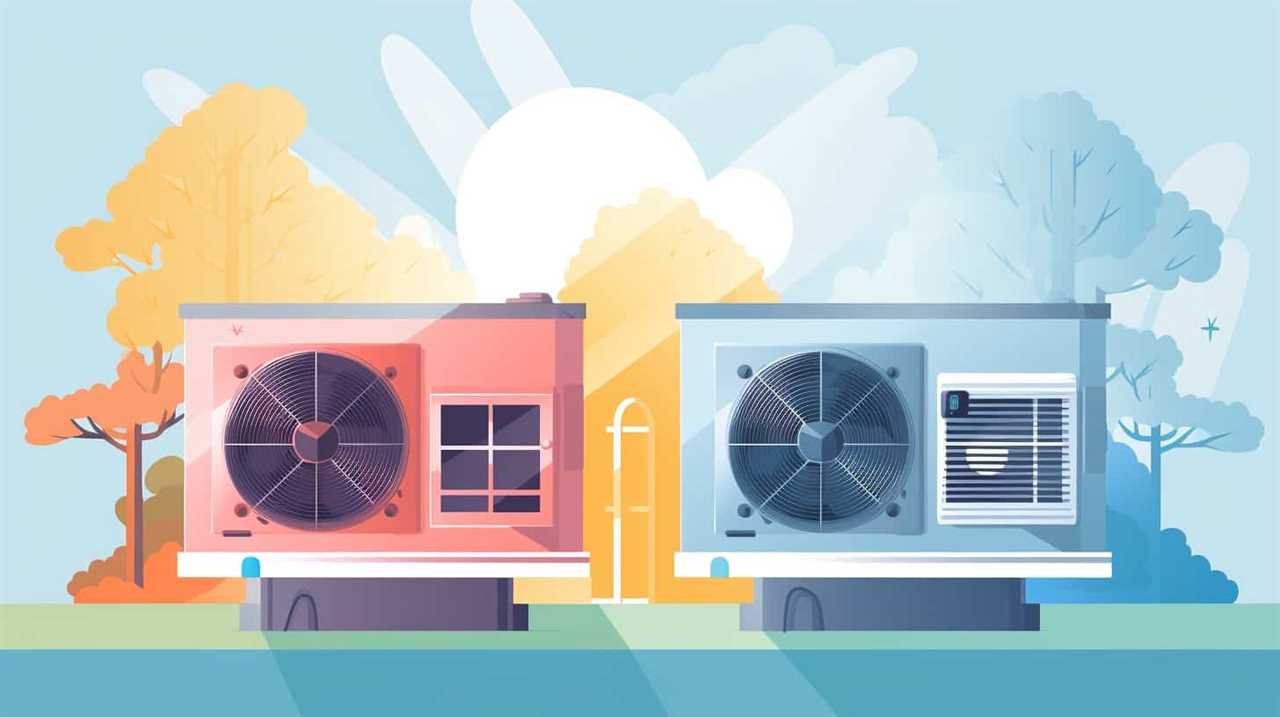
-
Invest in a programmable thermostat: A programmable thermostat allows you to set temperature schedules that align with your daily routine. By adjusting the temperature settings to be slightly lower when you’re away or asleep, you can significantly reduce energy consumption without sacrificing comfort.
-
Seal and insulate your home: Properly insulating and sealing your home will prevent heat loss during the colder months and heat gain during the warmer months. This will reduce the workload on your heat pump and improve its overall efficiency.
Frequently Asked Questions
Can Heat Pumps Be Used to Cool a Home or Building as Well as Heat It?
Yes, heat pumps can be used to cool a home or building. Heat pump cooling efficiency is high, making it an efficient and cost-effective option. The benefits of using heat pumps for cooling include energy savings and environmental friendliness.
How Does the Size of a Heat Pump Affect Its Electricity Usage?
The size of a heat pump has a significant impact on its electricity usage. Factors such as the square footage of the space being heated or cooled, insulation levels, and climate conditions all influence the energy consumption of a heat pump.
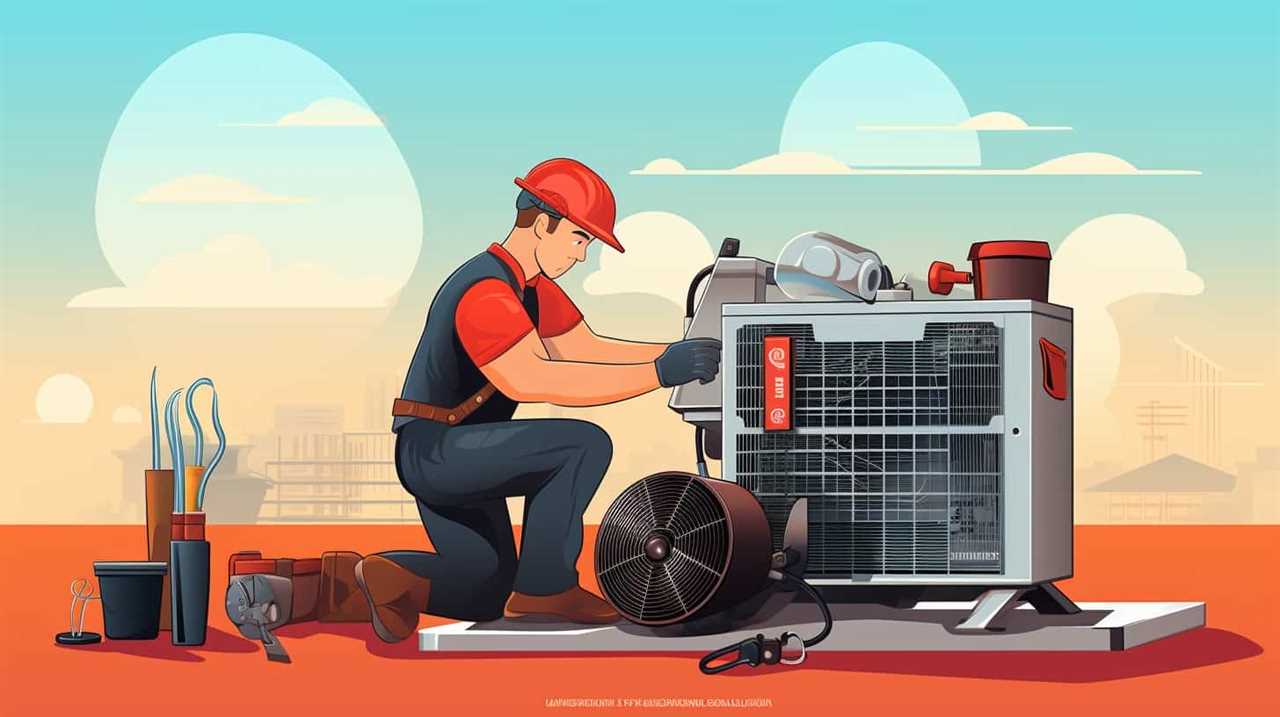
Are There Any Government Incentives or Rebates Available for Installing a Heat Pump?
Currently, we’re exploring the availability of government incentives and heat pump rebates. It’s crucial to understand the financial support options provided by the government to encourage the adoption of energy-efficient heating systems.
Can a Heat Pump Be Used in Areas With Extreme Temperatures, Such as Very Cold or Very Hot Climates?
Yes, a heat pump can be used in extreme climates. However, it may face challenges in terms of efficiency. In very cold climates, the heat pump may struggle to extract heat from the air. In very hot climates, it may have difficulty dissipating heat effectively.
What Maintenance Is Required for a Heat Pump to Ensure Optimal Electricity Efficiency?
To ensure optimal electricity efficiency, heat pump maintenance is crucial. Regularly cleaning or replacing filters, inspecting and cleaning coils, and checking refrigerant levels are key steps in maintaining energy efficient heat pumps.
Conclusion
In conclusion, after unraveling the mysteries behind heat pump electricity usage, it’s clear that there are various factors at play.

From the type of heat pump to the climate it operates in, understanding these factors is crucial to optimizing energy efficiency.
While it may seem counterintuitive, the irony lies in the fact that heat pumps, designed to provide warmth, can actually be a source of energy savings when used wisely.
So, next time you’re considering a heat pump, remember to take a technical and analytical approach to maximize its potential.









